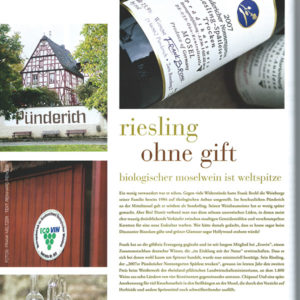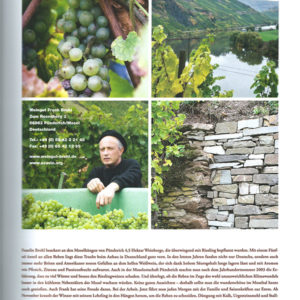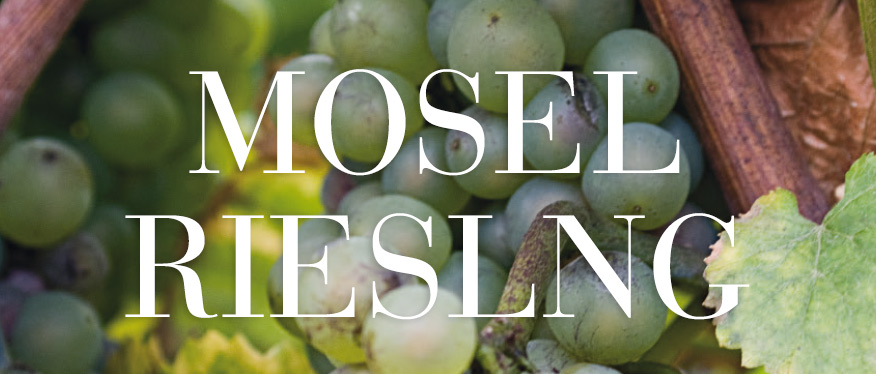He was a little surprised. Against much resistance, Frank Brohl converted his family’s vineyards to organic cultivation back in 1984. In the tranquil town of Pünderich on the Middle Moselle, he has been considered an eccentric ever since. He became a master winemaker a little later. But organic? It was only associated with these strangely unattractive stores, where mostly sad-looking salespeople advertised a new food culture among dusty grain mills and shriveled carrots. Who would have thought back then that today there would even be organic corners at discount stores and that green glamor would even conquer Hollywood?

Frank believed in toxin-free production and has long been a member of “Ecovin”, an association of German winegrowers who produce “in harmony with nature”. The fact that they are hardly cranks has now been confirmed by the minister. His Riesling, the “2007 Pündericher Nonnengarten Spätlese trocken”, won second prize in last year’s competition organized by the Rhineland-Palatinate Ministry of Agriculture, in which 1,800 wines from ten countries on four continents competed against each other. Châpeau! And a belated recognition for a lot of hard work on the steep slopes of the Moselle, which is even more strenuous due to the absence of herbicides and other sprays.

Ultimately, a worthwhile effort for the sensitive vine. Riesling is considered the king of German white wines and reveals more than just the nature of the terroir like no other. In the Devonian slate of the Marienburg vineyard in Pünderich, it is iron oxide that produces special fruit aromas in the bottle. In the award-winning Nonnengarten, the slate is interspersed with red sandstone, a mineral interplay that creates a fine spiciness. The manual harvest will soon begin again on the steep slopes with optimal south-west and south-east exposure, which were already used by the Romans 2,000 years ago to grow grapes and produce successful export products. Of course, the many dry stone walls are not really ancient, but their preservation makes economic sense again with the renaissance of German wine, and Riesling in particular. Frank Brohl also had some things done to secure his slopes and preserve a picturesque cultural landscape. “Slow Food Germany” is also involved in dry stone walling. So that a picturesque cultural landscape and its products can be preserved.
Summary from “Living 05/2009”


